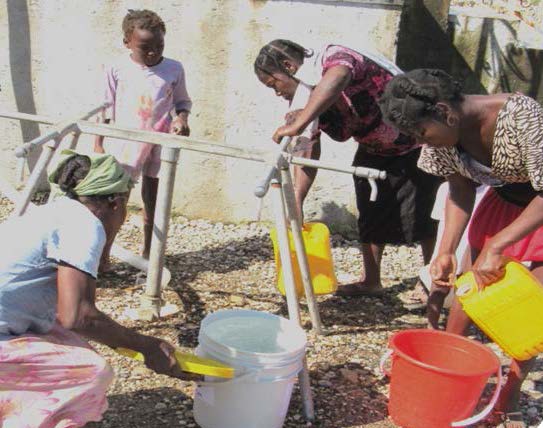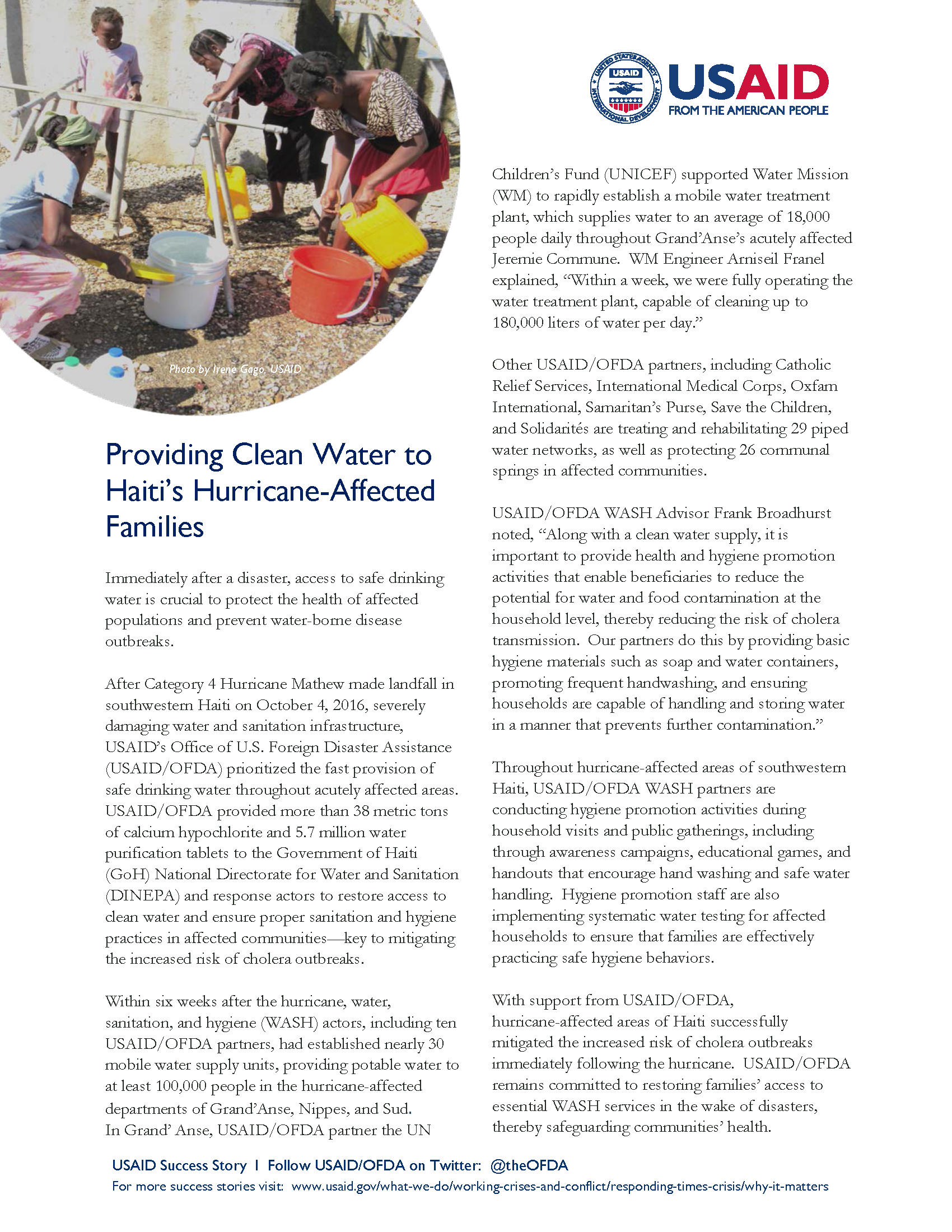Speeches Shim

Immediately after a disaster, access to safe drinking water is crucial to protect the health of affected populations and prevent water-borne disease outbreaks.
After Category 4 Hurricane Mathew made landfall in southwestern Haiti on October 4, 2016, severely damaging water and sanitation infrastructure, USAID’s Office of U.S. Foreign Disaster Assistance (USAID/OFDA) prioritized the fast provision of safe drinking water throughout acutely affected areas. USAID/OFDA provided more than 38 metric tons of calcium hypochlorite and 5.7 million water purification tablets to the Government of Haiti (GoH) National Directorate for Water and Sanitation (DINEPA) and response actors to restore access to clean water and ensure proper sanitation and hygiene practices in affected communities—key to mitigating the increased risk of cholera outbreaks.
Within six weeks after the hurricane, water, sanitation, and hygiene (WASH) actors, including ten USAID/OFDA partners, had established nearly 30 mobile water supply units, providing potable water to at least 100,000 people in the hurricane-affected departments of Grand’Anse, Nippes, and Sud. In Grand’ Anse, USAID/OFDA partner the UN Children’s Fund (UNICEF) supported Water Mission (WM) to rapidly establish a mobile water treatment plant, which supplies water to an average of 18,000 people daily throughout Grand’Anse’s acutely affected Jeremie Commune. WM Engineer Arniseil Franel explained, “Within a week, we were fully operating the water treatment plant, capable of cleaning up to 180,000 liters of water per day.”
Other USAID/OFDA partners, including Catholic Relief Services, International Medical Corps, Oxfam International, Samaritan’s Purse, Save the Children, and Solidarités are treating and rehabilitating 29 piped water networks, as well as protecting 26 communal springs in affected communities.
USAID/OFDA WASH Advisor Frank Broadhurst noted, “Along with a clean water supply, it is important to provide health and hygiene promotion activities that enable beneficiaries to reduce the potential for water and food contamination at the household level, thereby reducing the risk of cholera transmission. Our partners do this by providing basic hygiene materials such as soap and water containers, promoting frequent handwashing, and ensuring households are capable of handling and storing water in a manner that prevents further contamination.”
Throughout hurricane-affected areas of southwestern Haiti, USAID/OFDA WASH partners are conducting hygiene promotion activities during household visits and public gatherings, including through awareness campaigns, educational games, and handouts that encourage hand washing and safe water handling. Hygiene promotion staff are also implementing systematic water testing for affected households to ensure that families are effectively practicing safe hygiene behaviors.
With support from USAID/OFDA, hurricane-affected areas of Haiti successfully mitigated the increased risk of cholera outbreaks immediately following the hurricane. USAID/OFDA remains committed to restoring families’ access to essential WASH services in the wake of disasters, thereby safeguarding communities’ health.


Comment
Make a general inquiry or suggest an improvement.